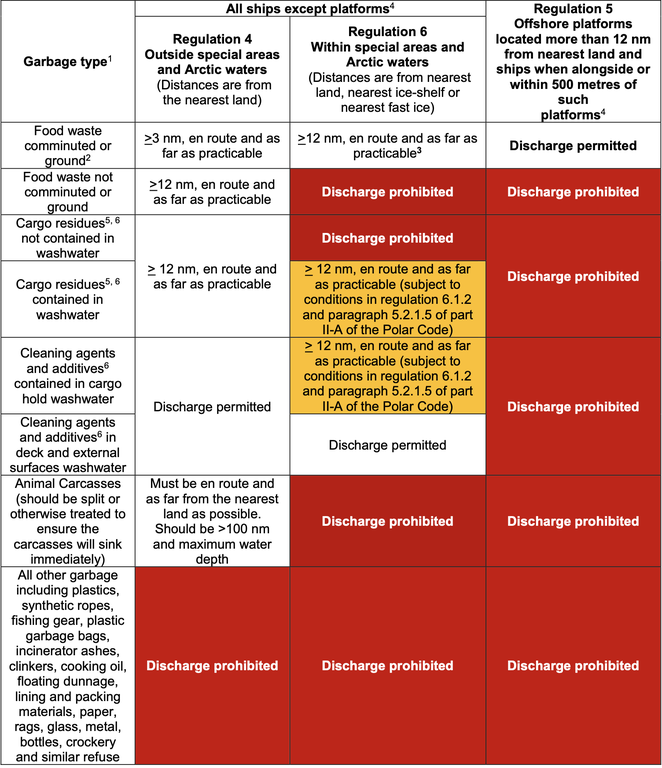Garbage
Introduction
Garbage from ships can be just as deadly to marine life as oil or other chemicals. The greatest danger comes from plastic, which can float for years. Fish and marine mammals can mistake plastics for food and they can also become trapped in plastic ropes, nets, bags and other items, such as the 6-pack plastic rings used to hold cans of beer and drinks together.
A key focus of REMPEC’s work is to support the agreement and implementation of the international maritime conventions relating to protecting marine environments, including Annex V to the MARPOL Convention, the key International legal instruments adopted in IMO, which seek to eliminate and reduce the amount of garbage being discharged at sea by ships. Throughout recent years, REMPEC has been actively exploring ways and measures to prevent ship-generated garbage pollution in the sea. Carrying out a series of activities and initiatives such as conducting studies, developing guidance and guidelines, implementing pilots and organizing regional events, with the intention of enhancing the sharing and spreading of best practices and ideas in order to effectively tackle the issue of garbage in the Mediterranean Sea.
Mediterranean Sea as a Special area
The Mediterranean Sea* is a special area under MARPOL Annex V, which means stricter rules are applied when it comes to the discharge of garbage by ships in this area. The table below provides an overview and comparison of the discharge provisions for different areas as provided for by MARPOL Annex V:

1 When garbage is mixed with or contaminated by other harmful substances prohibited from discharge or having different discharge requirements, the more stringent requirements shall apply.
2 Comminuted or ground food wastes must be able to pass through a screen with mesh no larger than 25 mm.
3 The discharge of introduced avian products in the Antarctic area is not permitted unless incinerated, autoclaved or otherwise treated to be made sterile. In polar waters, discharge shall be made as far as practicable from areas of ice concentration exceeding 1/10; in any case food wastes shall not be discharged onto the ice.
4 Offshore platforms located 12 nautical miles from nearest land and associated ships include all fixed or floating platforms engaged in exploration or exploitation or associated processing of seabed mineral resources, and all ships alongside or within 500 m of such platforms.
5 Cargo residues means only those cargo residues that cannot be recovered using commonly available methods for unloading.
6 These substances must not be harmful to the marine environment.
* The Mediterranean sea area as indicated in MARPOL Annex V means the Mediterranean Sea proper including the gulfs and seas therein, with the boundary between the Mediterranean and the Black Sea constituted by the 41º N parallel and bounded to the west by the Straits of Gibraltar at the meridian 5°36΄ W.
Legal Instruments
The key international regulatory framework responsible for preventing pollution of garbage from ships is established by Annex V of MARPOL.
The ratification status of MARPOL Annex V in the Mediterranean region:


